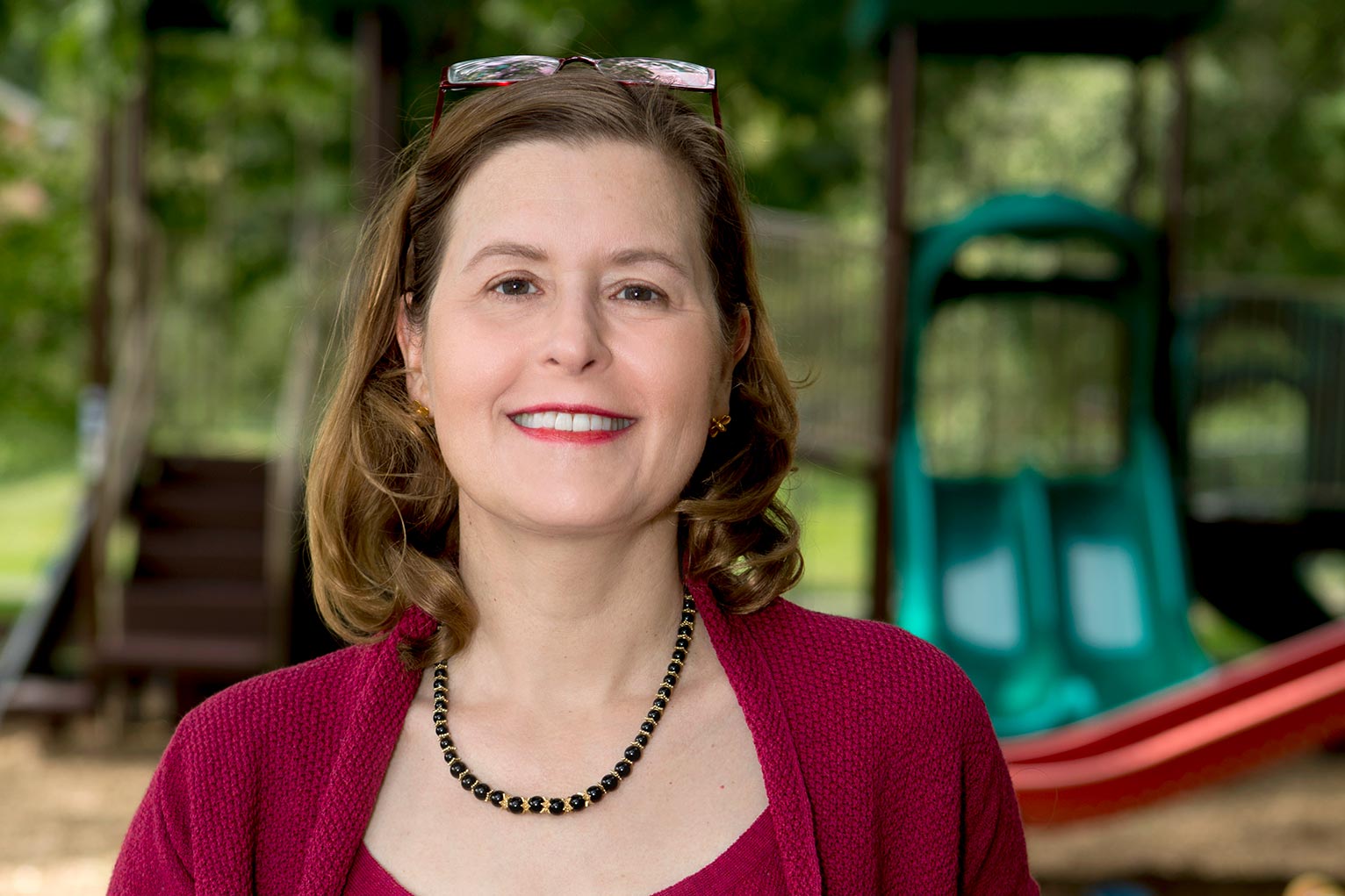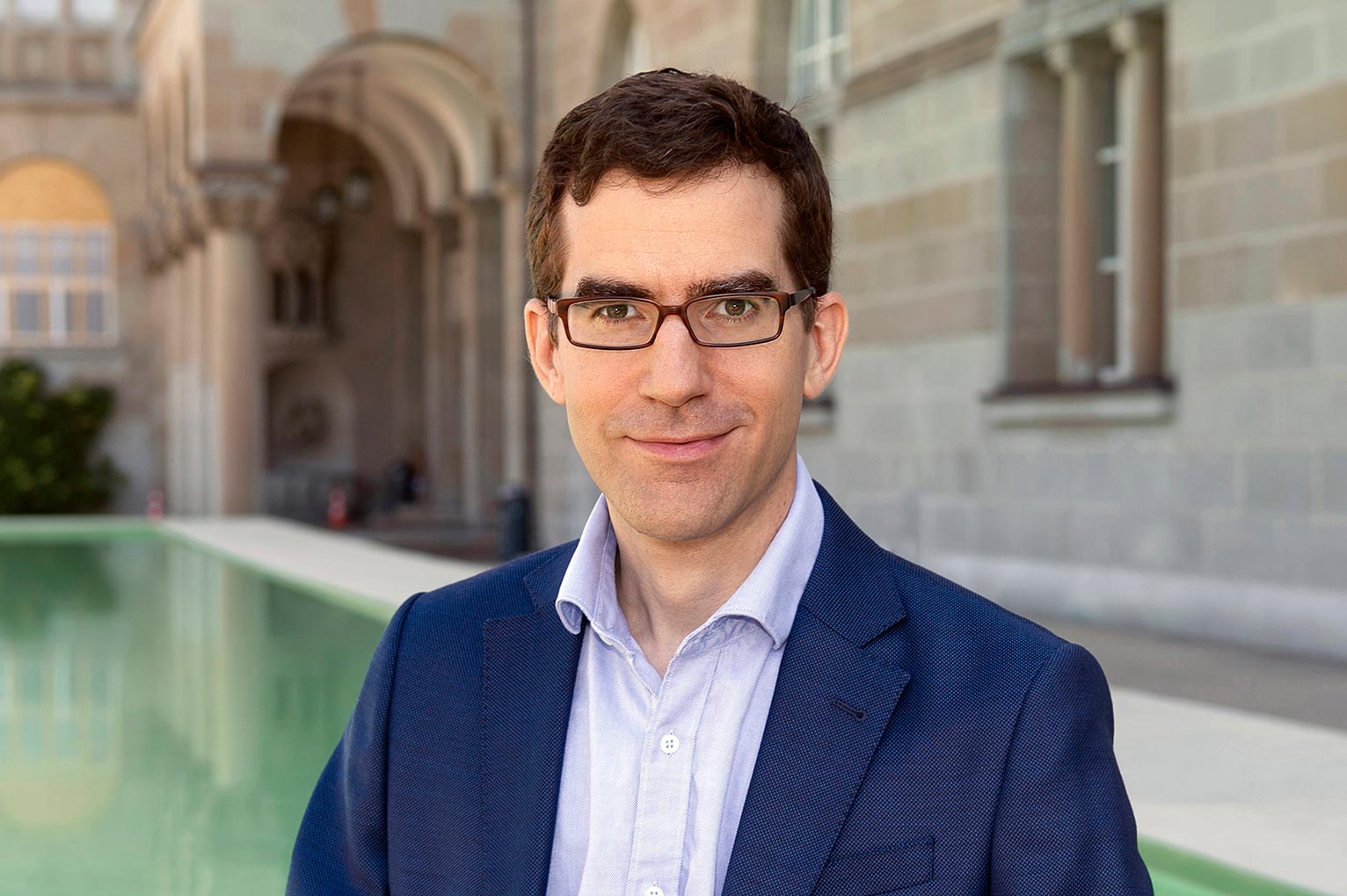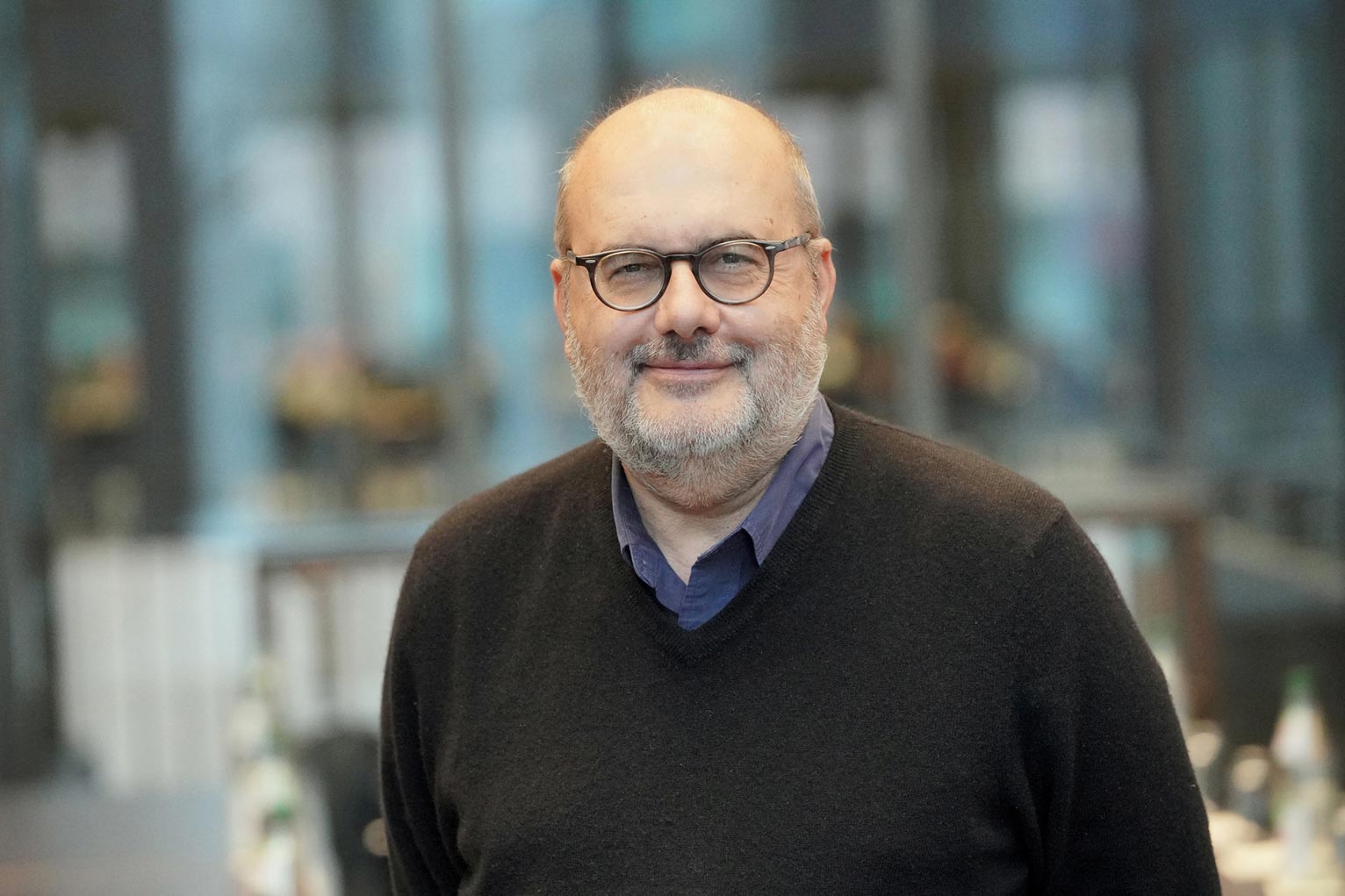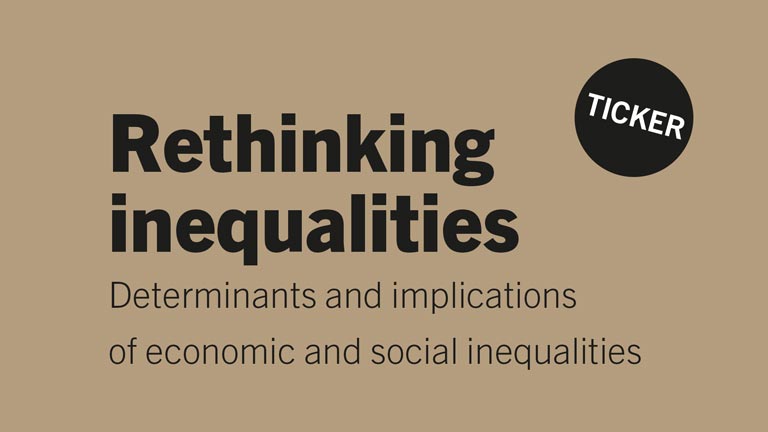Panel discussion: Inequality - facts and consequences
Video
Panel session
Research insights on economic inequality and its consequences take center stage in this discussion panel, bringing together three experts with multiple perspectives. While Branko Milanovic’s historical data show that the rise of Asia has led to a decrease in global inequality in the past decade and that the growth of the global top 1% has slowed down in recent years, the discussants agree that overall, inequality is still very high. Janet Currie argues that there is too much inequality, when there is a privileged group that can separate itself from a deteriorating public service, say through private hospitals or schools. David Dorn emphasizes that the threshold - when inequality is clearly harmful - is reached when some large income groups cannot profit anymore from the overall growth in the country, like currently in the US. Finally, they discuss whether the corona pandemic will increase inequality or whether it might even accelerate the progressive reduction of global inequality.
Janet Currie is a pioneer in the economic analysis of child development. Her current research focuses on socioeconomic differences in health and access to health care, environmental threats to health, the important role of mental health, and the long-run impact of health problems in pregnancy and early childhood.
David Dorn’s research spans the fields of labor economics, international trade, political economy, and macroeconomics. He leads the new University Research Priority Programs (URPP) Equality of Opportunity at the University of Zurich. The program aims to investigate the economic and societal changes that give rise to inequality. The researchers involved in the program will also analyze concrete legal frameworks and political measures that help to increase equal opportunities for all members of a society.
Branko Milanovic’s main area of work is income inequality, in individual countries and globally, as well as historically, among pre-industrial societies (Roman Empire, Byzantium, and France before the Revolution), and even inequality in soccer. He has published a number of articles on the methodology and empirics of global income distribution and the effects of globalization.
Research insights on economic inequality and its consequences take center stage in this discussion panel, bringing together three experts with multiple perspectives. While Branko Milanovic’s historical data show that the rise of Asia has led to a decrease in global inequality in the past decade and that the growth of the global top 1% has slowed down in recent years, the discussants agree that overall, inequality is still very high. Janet Currie argues that there is too much inequality, when there is a privileged group that can separate itself from a deteriorating public service, say through private hospitals or schools. David Dorn emphasizes that the threshold - when inequality is clearly harmful - is reached when some large income groups cannot profit anymore from the overall growth in the country, like currently in the US. Finally, they discuss whether the corona pandemic will increase inequality or whether it might even accelerate the progressive reduction of global inequality.
Janet Currie is a pioneer in the economic analysis of child development. Her current research focuses on socioeconomic differences in health and access to health care, environmental threats to health, the important role of mental health, and the long-run impact of health problems in pregnancy and early childhood.



Program overview
| Research slam: (In-)Equality and prosperity |
Wednesday, 21.10.2020 | 16:30–17:30 (CET) Moderator: Nir Jaimovich Speakers: participants as listed |
| Panel session: Inequality - facts and consequences |
Wednesday, 28.10.2020 | 16:00–17:15 (CET) Moderator: James Mackintosh Speakers: Janet Currie, David Dorn, Branko Milanovic |
| Webinar: Taxing the superrich |
Tuesday, 3.11.2020 | 16:00–17:00 (CET) Speaker: Florian Scheuer |
| Keynote lecture: Inequality and the future of capitalism |
Wednesday, 11.11.2020 | 18:00–19:00 (CET) Speaker: Nobel Laureate Sir Angus Deaton |
| Research slam: (In-)Equality and prosperity |
Wednesday, 21.10.2020 | 16:30–17:30 (CET) Moderator: Nir Jaimovich Speakers: participants as listed |
| Panel session: Inequality - facts and consequences |
Wednesday, 28.10.2020 | 16:00–17:15 (CET) Moderator: James Mackintosh Speakers: Janet Currie, David Dorn, Branko Milanovic |
| Webinar: Taxing the superrich |
Tuesday, 3.11.2020 | 16:00–17:00 (CET) Speaker: Florian Scheuer |
| Keynote lecture: Inequality and the future of capitalism |
Wednesday, 11.11.2020 | 18:00–19:00 (CET) Speaker: Nobel Laureate Sir Angus Deaton |
Forum for Economic Dialogue
Special times call for special measures. That is why our annual forum this year took place online. Despite the change in format, we had sought to maintain our customary standards. We had a series of events in store, focusing on different aspects of inequality – a topic that has become even more important in light of the global pandemic and its devastating consequences, which has hit many of the most vulnerable people in the world particularly hard. Visit our event hub for timely updates and background information.
Special times call for special measures. That is why our annual forum this year took place online. Despite the change in format, we had sought to maintain our customary standards. We had a series of events in store, focusing on different aspects of inequality – a topic that has become even more important in light of the global pandemic and its devastating consequences, which has hit many of the most vulnerable people in the world particularly hard. Visit our event hub for timely updates and background information.

Speakers
Janet Currie ist eine Pionierin in der ökonomischen Analyse der Entwicklung von Kindern. Ihre aktuelle Forschung konzentriert sich auf sozioökonomische Unterschiede bei der Gesundheit und dem Zugang zur Gesundheitsversorgung, umweltbedingte Gesundheitsgefahren, die wichtige Rolle der psychischen Gesundheit und die langfristigen Auswirkungen von Gesundheitsproblemen in der Schwangerschaft und frühen Kindheit.
David Dorn is the UBS Foundation Professor of Globalization and Labor Markets at the University of Zurich and the director of the university-wide interdisciplinary research priority program “Equality of Opportunity.” He was previously a tenured associate professor at CEMFI in Madrid, a visiting professor at the University of California in Berkeley, and a visiting professor at Harvard University.Professor Dorn’s research spans the fields of labor economics, international trade, economic geography, macroeconomics, and political economy. He published influential studies on the impacts of globalization and technological innovation on labor markets and society. David Dorn is among the 100 most highly cited economists worldwide in the last decade. In 2023, he was awarded the Hermann Heinrich Gossen Prize for the most accomplished economist in German-speaking countries under the age of 45.
Branko Milanovics Hauptarbeitsgebiet ist die Einkommensungleichheit in einzelnen Ländern und weltweit, aber auch historisch gesehen, zwischen vorindustriellen Gesellschaften (Römisches Reich, Byzanz und Frankreich vor der Revolution) und sogar die Ungleichheit im Fussball. Er hat eine Reihe von Artikeln zur Methodik und Empirie der globalen Einkommensverteilung und zu den Auswirkungen der Globalisierung veröffentlicht.
James Mackintosh ist ein leitender Kolumnist des Wall Street Journal (WSJ). Er kam 2016 zum WSJ, nach fast 20 Jahren bei der Financial Times, zuletzt als Investment Editor und Autor der Short View-Kolumne. Er ist Absolvent des St. Catherine's College, Oxford, wo er einen erstklassigen Abschluss in Philosophie und Psychologie erwarb.
Janet Currie ist eine Pionierin in der ökonomischen Analyse der Entwicklung von Kindern. Ihre aktuelle Forschung konzentriert sich auf sozioökonomische Unterschiede bei der Gesundheit und dem Zugang zur Gesundheitsversorgung, umweltbedingte Gesundheitsgefahren, die wichtige Rolle der psychischen Gesundheit und die langfristigen Auswirkungen von Gesundheitsproblemen in der Schwangerschaft und frühen Kindheit.
David Dorn is the UBS Foundation Professor of Globalization and Labor Markets at the University of Zurich and the director of the university-wide interdisciplinary research priority program “Equality of Opportunity.” He was previously a tenured associate professor at CEMFI in Madrid, a visiting professor at the University of California in Berkeley, and a visiting professor at Harvard University.Professor Dorn’s research spans the fields of labor economics, international trade, economic geography, macroeconomics, and political economy. He published influential studies on the impacts of globalization and technological innovation on labor markets and society. David Dorn is among the 100 most highly cited economists worldwide in the last decade. In 2023, he was awarded the Hermann Heinrich Gossen Prize for the most accomplished economist in German-speaking countries under the age of 45.
Branko Milanovics Hauptarbeitsgebiet ist die Einkommensungleichheit in einzelnen Ländern und weltweit, aber auch historisch gesehen, zwischen vorindustriellen Gesellschaften (Römisches Reich, Byzanz und Frankreich vor der Revolution) und sogar die Ungleichheit im Fussball. Er hat eine Reihe von Artikeln zur Methodik und Empirie der globalen Einkommensverteilung und zu den Auswirkungen der Globalisierung veröffentlicht.
James Mackintosh ist ein leitender Kolumnist des Wall Street Journal (WSJ). Er kam 2016 zum WSJ, nach fast 20 Jahren bei der Financial Times, zuletzt als Investment Editor und Autor der Short View-Kolumne. Er ist Absolvent des St. Catherine's College, Oxford, wo er einen erstklassigen Abschluss in Philosophie und Psychologie erwarb.